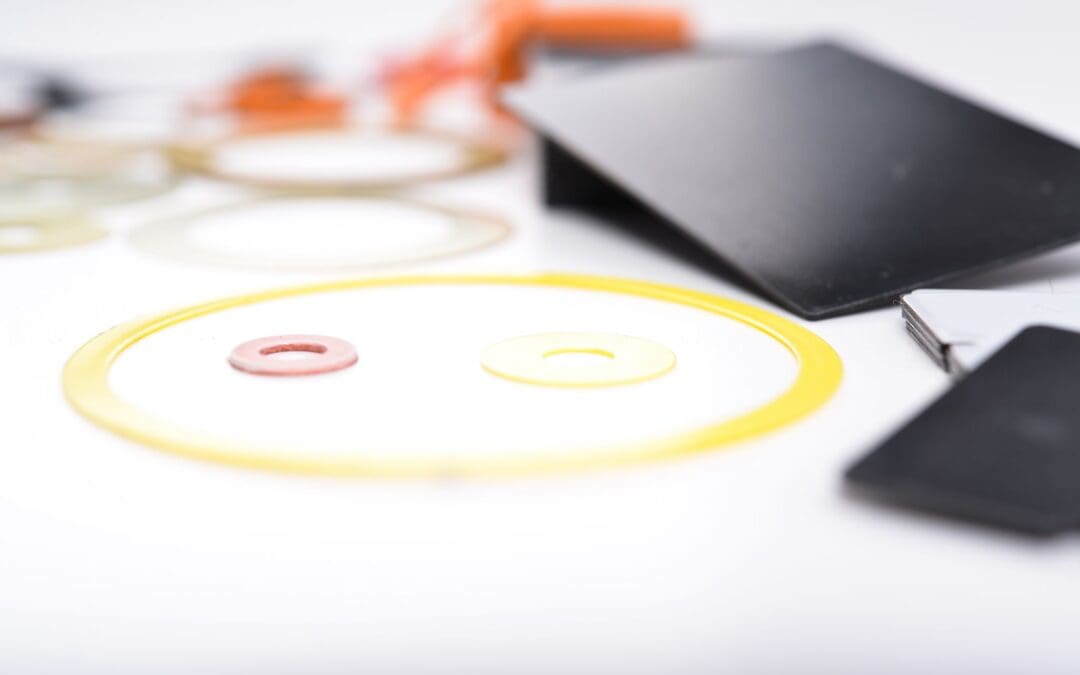Summary. Stephens Gaskets offers a variety of sheet materials, including ferrous metals (containing iron) and non-ferrous metals (without iron). Ferrous metals like stainless steel and wrought iron are magnetic and used in construction, while non-ferrous metals like aluminum, copper, and brass are malleable, corrosion-resistant, and suitable for wet environments and electrical applications.
Here at Stephens Gaskets, we are proud to have spent decades in the industry, manufacturing precision machined components made from a wide range of materials. Over the years we have been able to watch industries and companies worldwide reap the benefits that sheet material can provide to them, and we are proud to offer sheeting and strip material alongside our pre-cut components. From hardened carbon steels and grain-oriented electrical sheets, we can accommodate many industrial applications. Our group of non-ferrous metals for strip and sheeting material is one of the most popular, but what exactly does the category entail?
Related: Important Neoprene Properties: A Quick Guide
Ferrous Vs Non-Ferrous
There are quite a few significant differences between ferrous and non-ferrous metals, but one of the easiest ways to determine one from the other is the containment of iron. Ferrous metals contain iron, and non-ferrous metals don’t. Both types also have a number of other distinct properties that determine where they can and can’t be used.
Ferrous Metals
Usually used in construction, shipping containers, vehicles, and popping, ferrous metals are magnetic. Due to the fact that some ferrous metals can rust when exposed to moisture, the most reliable long-term options include wrought iron and stainless steel.
Stainless steel
Stainless steel is one of the most ferrous metals on the market due to its heat and corrosion resistance. It is durable, can withstand many extreme environments, and can offer incredible life-long value compared to most other steels.
Wrought Iron
Wrought iron is another durable type of ferrous metal and is usually an alloy that contains very little carbon. It is highly resistant to corrosion and oxidation and therefore is used in chains, wires, and railings.
Cast Iron
Cast iron is strong but also very brittle. With this in mind, it is often used to manufacture engine blocks and manhole covers.
Carbon Steel
Carbon steel is one of the hardest and toughest steels due to its carbon content. Its strength means it is the go-to steel for use in the manufacturing of tools, drills, and blades.
Non-ferrous Metals
Non-ferrous metals lack iron but this is not necessarily a bad thing. In fact, having no iron means that they boast great malleability and much higher resistance to corrosion and rust. As a result of these properties, non-ferrous metals are often used in wet environments and will commonly be used for gutters, liquid pipes, and roofing.
Aluminium
Aluminium is a non-ferrous metal and is very lightweight which makes it ideal in applications where weight is a factor. With low density and high corrosion resistance, aluminium is often used in the food and drinks sector.
Copper
Copper sheet material has high electrical conductivity which means it is perfect for use in applications that need to be able to conduct heat or electricity without the risk of expansion. It is used widely in electrical wiring, roofing, plumbing, and machinery applications.
Brass
Brass is a combination of copper and zinc and therefore boasts similar properties to copper when it comes to electrical conductivity. With this in mind, it is also often used for electrical fittings.
Contact Us Today
To find out more about ferrous and non-ferrous metal sheeting and strip material at Stephens Gaskets, please call today. Call at 0121 544 5808 to speak to a member of our helpful and friendly team.
If you have found this blog helpful. Then you may wish to read our previous blog on The Cost Benefits of Custom Shim Washers or PTFE Gasket Material: The Benefits

